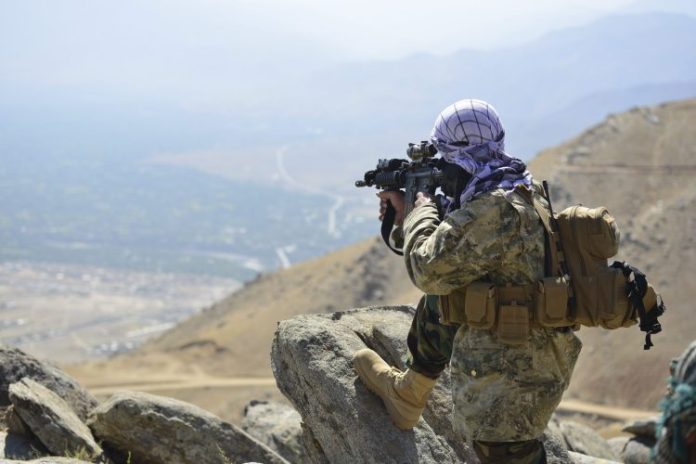RASC News Agency: In a comprehensive analytical report marking the third anniversary of the Taliban’s control over Afghanistan, the Hudson Institute has recommended that the United States extend its support to the “Anti-Taliban Resistance Front.” Luke Coffey, the report’s author, underscores that Afghanistan has been mired in a severe humanitarian crisis over these three years, affecting millions and once again transforming the country into a “safe haven for transnational terrorists.”
Coffey argues that the most prudent course of action for the United States is to support the anti-Taliban resistance, rather than extending any form of backing to the Taliban. The report also delivers a scathing critique of the Biden administration’s decision to withdraw from Afghanistan, asserting that this move has left the United States with few viable political options in the region. The report notes that many Afghanistani citizens continue to harbor deep mistrust towards the White House.
Coffey suggests that a new administration in the United States could reassess its policy towards Afghanistan and consider support for the anti-Taliban resistance as a “strategically sound starting point.” He further recommends that this support could include extending an official invitation to Ahmad Massoud, the leader of the Resistance Front, to visit Washington, participating in the Vienna Process for a democratic Afghanistan, refusing to recognize the Taliban, and providing both military and civilian assistance to the resistance.
According to the Hudson Institute’s analysis, the Taliban, now entrenched in power, have realized that governing the country is far more challenging than waging an insurgency against the former Afghanistan government. This failure in governance has precipitated one of the worst humanitarian disasters Afghanistan has witnessed since the 1990s. The report, drawing on United Nations data regarding human rights and humanitarian crises in Afghanistan, states that the future of millions of Afghanistani citizens remains “shrouded in uncertainty.”
The Hudson Institute emphasizes that the Taliban, in breach of their commitments under the Doha Agreement, have failed to stem the tide of terrorism in Afghanistan. The report also points to the surge in ISIS attacks against Shiites and the increased activities of Al-Qaeda in the country, noting that Al-Qaeda has capitalized on the Taliban’s dominance. The report reveals that Al-Qaeda is actively seeking to collaborate with other terrorist groups, such as the East Turkestan Islamic Movement and Jamaat Ansarullah, to bolster its presence in northern Afghanistan and expand its influence into Central Asia. It also mentions that the Taliban have ceded control of the Tajikistan-Afghanistan border to Jamaat Ansarullah.
The report further notes the close relationship between Al-Qaeda and the Taliban, with Al-Qaeda operating unimpeded in northern Afghanistan. The Islamic Movement of Uzbekistan, comprising Uzbek and Tajik factions, also fought alongside the Taliban during their 2021 seizure of power. Coffey highlights the objectives and activities of the Anti-Taliban Resistance Front in Panjshir and other provinces, noting that this front carried out approximately 200 military operations in the first half of 2024.
The report concludes by stating that “supporting the Resistance Front aligns with U.S. strategic interests,” and that the Biden administration’s current policy towards this front is devoid of strategic vision. Given Afghanistan’s critical role in U.S. foreign policy, engagement with the Resistance Front could be seen as a “strategic insurance policy” for the United States.






